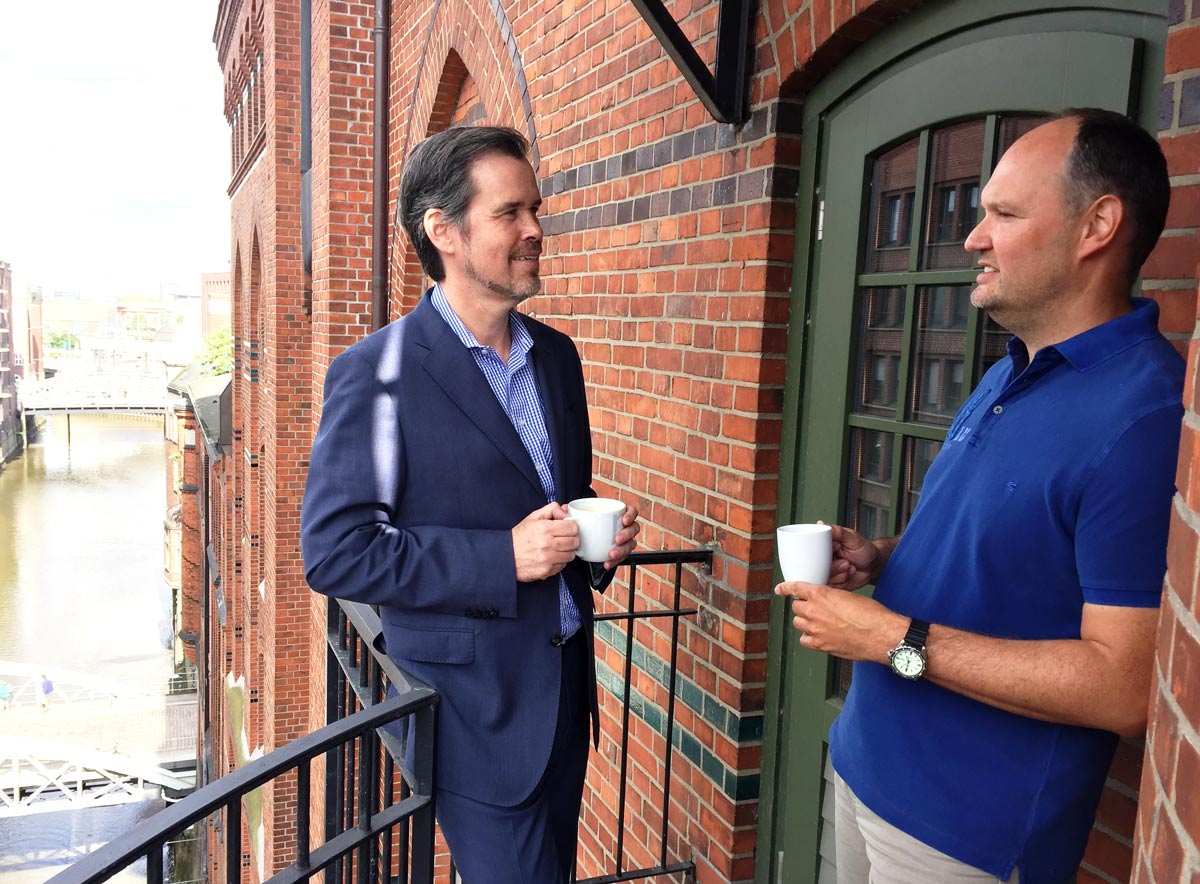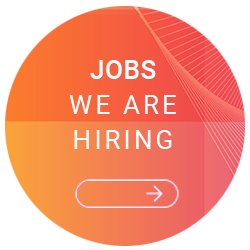From September 6 to 8, solutions.hamburg, Germany’s largest digitization congress, will be held in the north German port city and mgm is in charge of the Driving Digital Transformation track, one of the event’s core topics. Reason enough for the mgm editors to interview Frank Kneschke, the founder and managing partner of mgm consulting partners, about his views on digital change.
mgm live: Frank, as part of your track at solutions.hamburg you are letting customers from a wide range of industries have their say. Have you found in your consulting practice that some industries are especially affected by digitization?
Frank Kneschke: When I look at our clients I find digitization to be an issue everywhere. The real question is how far advanced they are in dealing with the challenge and how they are coping with it. Industry-specific differences do, of course, exist, as do different approaches within individual industries. One of our energy generation customers, for example, has adopted a very aggressive approach. It assumes in a strategic scenario that by 2030 conventional power generation might no longer play a role and is already on the lookout for new business models to cope with this change. In publishing, in contrast, these far-reaching change processes are already in full swing. Some publishers have set up digital divisions that no longer produce anything physical. So it could be argued that these companies have already fully digitized themselves. But that does not mean they can now rest on their laurels and no longer need to change. Quite the opposite; in this case Google and Facebook are changing the framework conditions so often that they need to react much faster. I believe that digitization imposes on companies a very strong pressure to innovate and change – and will continue to do so. This pressure is never going to disappear.
mgm live: You noted just now that some firms are drawing up very long-term scenarios. On the other hand there is the pressure to change you mentioned that can change direction by the day. Bearing that in mind is there any point in drawing up longer-term forecasts and plans?
In many enterprises innovation projects have been just nice to have.
Frank Kneschke: Drawing up long-term strategic scenarios definitely makes sense. What matters, however, is at the same time to be aware of the pressure for change while always bearing in mind that the preconditions for the scenario as drawn up can change at any time. To be able to react to changes of this kind the ability to innovate continuously must be a part of the corporate DNA. That, however, poses problems for many companies because in recent years the pressure to change has varied in certain industries, depending on how much the business model or sales channel itself has changed. As a consequence innovation projects already the norm in some industries whereas they are slow to get under way in others so that firms doing business in these areas are in no way accustomed to embarking on genuine innovation processes. They may have launched the occasional so-called innovation project in order to look a little further afield, but basically it has all been just nice to have and really decisive. That has now changed fundamentally. Disruption there has always been, but the technology leap that digitization has triggered – and the fundamental threat to many traditional business models – are really new.
mgm live: Do you feel that companies are now really open about facing up to this challenge, or are they more driven than they are the driving forces?
Frank Kneschke: You will often find, especially at established companies, that they have settled for constancy, regularity, and process conformity. That is not bad in itself; it only becomes bad if you need to develop faster than used to be the case. With the pressure for change now transparent, boardrooms are increasingly aware of it. These companies may have very good executives but in many cases the long phase of stability has led to them becoming set in their ways, their business of old, and their business traditions. That is why I do not believe that real use is made in these firms of the full power and innovative force of their employees – especially their young employees.
mgm live: What counter-measures can be undertaken at this point?
Frank Kneschke: Silpion, the organizer of solutions.hamburg, has coined the right motto in this context: “Digitization is man-made.” In practice we as consultants regularly find employee-oriented change management to be immensely important. After all, even at companies that believe they are already fully digitized it is the employees who rack their brains daily over possible improvements. And there is a constant risk that somebody might turn the company’s business model head over heels by means of new technology and maybe even eliminate its business basis. That is why it is so important to get your employees onside because the knowledge required is usually already there in-house and has been for quite some time. It simply hasn’t had access to channels to gain it a hearing.

Frank Kneschke: Yes, I do believe that innovation is a cultural challenge. Digitization is merely a kind of innovation or of the major technological changes we are currently undergoing, and with so many companies feeling it to be a threat it also poses a genuine cultural challenge for businesses. That is why we are noticing, especially among companies with a more traditional approach, a strong increase in demand for agile consulting. Many firms want to know not only how to manage projects in a more agile way but also how to make their entire organization more agile. One of our objectives in projects of this kind is to reopen the intrinsic channel from below that is blocked in so many enterprises. Many firms find this to be a very tough task. That is why some companies prefer to pursue new digital business models close to but separate from themselves at spinoff companies that are not a part of the group. The new companies are then permitted to cherry-pick any part of the parent group that they may need for their mission. They can also help themselves in the market freely and without complications, and in that way they are best able to develop separately and, above all, fast. This approach is one that is also much to my liking.
mgm live: You have already mentioned a number of digitization strategies. What role does IT play in this context?
Change has now put in an appearance. IT is suddenly seen as a value enhancer that is to help generate new digital business models that will earn sales revenue.
Frank Kneschke: It would be easy to say that IT has always had something to do with digitization. In the past, however, it was mainly a matter of optimizing core processes within the enterprise and providing IT support. For a long time that was IT’s main task, but change has now put in an appearance. IT is suddenly seen as a value enhancer that is to help generate new digital business models that will earn sales revenue. So the company’s IT organization has many new questions to answer. What can it do better than others? How can it develop new business models with the existing data by way of data driven innovation? How can it not just support business processes but automate them? What still needs to be done in-house and what can be bought in? Basically, what are the nuances that IT must develop or further develop itself to distinguish itself from a commodity?
mgm live: Companies are thereby offloading a great deal of responsibility onto their IT departments. Could that be asking too much of them?
Frank Kneschke: That is indeed a problem. Can IT really acquire new skills from one day to the next? It is also only a few years since the publication of Nicholas G. Carr’s article “IT doesn’t matter” which exercised such a strong influence on how German firms deal with their in-house IT. Many companies went on to see IT as just a commodity, outsourced many areas and so drastically reduced their own IT’s ability to act. Viewed from this angle you are right. An IT department that for years was assessed solely in terms of cost-effectiveness and is heavily burdened by outsourcing could be overtaxed by suddenly being required to be innovative and to develop new solutions in addition to the regular work that it still has to do. Furthermore, in many companies there is still a certain amount of mistrust of IT on the part of the business and in the boardroom – with the result that dealing with digitization is often seen as a part of the business and not of the IT.
mgm live: How is that unsatisfactory state of affairs to be remedied?
Frank Kneschke: Many companies solve the problem by setting up a new digital IT alongside the classical corporate IT, an IT of two speeds, as it were. The corporate IT handles the traditional tasks and the digital IT supports strategic considerations. The digital IT is often completely separate, with other players, other competences, other decision-making paths, and much more money. This line-up can lead to further difficulties, however, because the classical IT department is not yet felt to be capable of much and the newcomers are courted. These approaches are somehow still very half-baked, which is hardly surprising. The situation is entirely new, and that is why the question “What will be the IT organization of the future?” is very exciting.
mgm live: One last question. In retrospect, have there been examples that you have experienced or about which you have heard of which you thought “They have made a good job of digitization”?
Frank Kneschke: There are many success stories, but I find it hard to come to terms with the idea of anybody having dealt with digitization in the sense of completing the task. I don’t believe there is any such thing as a one and only digitization project in which a client can be transformed from Status A into a Status B of the once and for all digital company. I see the need for constant learning, improvement and catching up, and for the ability to innovate to be fundamentally anchored within the company. It never stops. Furthermore, digitization is simply a very big word – a very big word for anxiety, for the future, for automation, and for cultural change in dealing with employees and customers. And each of these aspects is so important that it needs to be dealt with individually.
We look forward to constructive discussions with visitors to solutions.hamburg. Would you like to be one of them? Click here for further information about the event and about the mgm track and our exclusive ticket offer.







